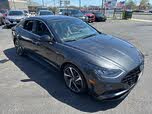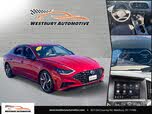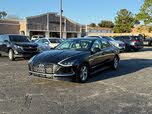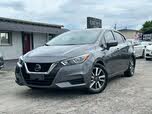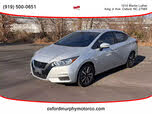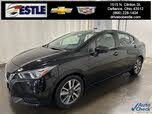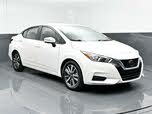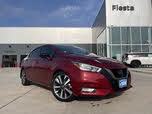2021 Hyundai Sonata vs 2020 Nissan Versa
Overview | ||
MSRP | $14,830 | $23,950 |
Average price | $12,832 | $19,164 |
Listings | ||
Ratings & Reviews | ||
User reviews | ||
Expert reviews | 7.2 out of 10Read full review | 8.5 out of 10Read full review |
Pros & cons | Pros
| Pros
|
Summary | When you're on a tight budget and need to replace a car, you often face a tough choice: Do you buy a new small car or something that’s pre-owned but has more space? For many years, if you were in the market for a new car, few came as cheaply as the Nissan Versa. Not only was it marketed as the least-expensive car in the United States, but it also had a plucky, underdog appeal to it. However, the charm of the Versa started to wear off as its shortcomings became more apparent. If you look at the “cheap” end of the market, you'll find some pretty unlovable cars, like the Mitsubishi Mirage and Chevrolet Spark. But there are also some bright spots. The Kia Rio and Hyundai Accent are both competent cars in their own ways, and the Honda Fit has always been a serious player. With the Fit, you never felt like you were seriously compromising to meet your budget. It seems as though Nissan has caught on to the realization that racing to the bottom works for only so long. Buyers have certainly caught on to the notion that you can have a small car that’s actually kind of good (See: Fit). In response, Nissan has rolled out the all-new 2020 Versa. It’s no longer the cheapest car in America, and in fact, it costs a couple of thousand dollars more than last year's version. But does that mean it’s more car, too? Read on to find out. | In a shrinking car market, the traditional sport sedan is increasingly rare. Designed and developed for people who prefer on-pavement performance but need passenger and cargo practicality, only a handful of dedicated non-premium sport sedans still exist, and most of those barely qualify for membership in the club. Enter the new 2021 Hyundai Sonata N Line, which addresses both performance and practicality in a compelling midsize package and at a bargain price. |
Video | ||
Popular Features & Specs | ||
Engine | 1.6L 122 hp I4 | 2.5L 191 hp I4 |
Drive Train | FWD | FWD |
Seating Capacity | 5 | 5 |
Horsepower | 122 hp @ 6300 rpm | 191 hp @ 6100 rpm |
MPG City | 27 | 27 |
MPG Highway | 35 | 37 |
Engine | ||
Engine Name | 1.6L 122 hp I4 | 2.5L 191 hp I4 |
Torque | 114 lb-ft @ 4000 rpm | 181 lb-ft @ 4000 rpm |
Horsepower | 122 hp @ 6300 rpm | 191 hp @ 6100 rpm |
Drivetrain | FWD | FWD |
Fuel Economy | ||
MPG City | 27 | 27 |
MPG Highway | 35 | 37 |
Interior | ||
Seating Capacity | 5 | 5 |
Safety | ||
Front Crash Overall | 5 | 4 |
Side Crash Overall | 5 | 5 |
Dimensions & Capacity | ||
Cargo Space | 14.7 cu ft | 16.3 cu ft |
Curb Weight | 2599 lbs | 3120 lbs |
Height | 57.3 in | 56.9 in |
Length | 177.0 in | 192.9 in |
Width | 68.5 in | 73.2 in |
Wheelbase | 103.1 in | 111.8 in |
Maximum Payload | 862 lbs | 1234 lbs |
Number of doors | 4 | 4 |
The 2020 Nissan Versa shed its previous "big car" styling details, opting for a more refined and handsome look reminiscent of its larger siblings, the Maxima and Altima. The new design was more proportional, avoiding oversized headlights and grilles. Inside, the cabin was straightforward but stylish, featuring a two-tone theme with dark charcoal and grayish cream colors. The seats had unique designs, and the overall interior space was generous for a subcompact sedan, although some harsh plastics and cheap-feeling manual seat adjustments were noticeable.
The 2021 Hyundai Sonata, redesigned for the 2020 model year, presented a daring and distinctive look. The N Line treatment added functional and stylistic changes, such as larger air intakes, gloss black side mirrors, and bold 19-inch wheels. The interior featured sport front seats with Nappa leather bolsters and Dinamica suede inserts, red stitching, aluminum pedal covers, and dark chrome accents. A panoramic sunroof was standard, enhancing the car's spacious feel. The Sonata's design was a blend of comfort and sportiness, making it a standout in its class.
The 2020 Nissan Versa was powered by a revised 1.6-liter 4-cylinder engine, producing 122 horsepower and 114 pound-feet of torque. This engine was paired with either a 5-speed manual or a continuously variable automatic transmission (CVT). The CVT, standard on the SV and SR trims, managed power well and offered a Sport mode for livelier performance. The Versa's steering was responsive, and the car handled well, though it leaned at higher speeds. Fuel economy was decent, with the CVT returning 32 mpg city, 40 highway, and 35 combined.
The 2021 Hyundai Sonata N Line featured a turbocharged 2.5-liter four-cylinder engine, delivering 290 horsepower and 311 pound-feet of torque. This power was managed by an eight-speed wet dual-clutch automatic transmission (DCT) with paddle shifters and a launch control system. The Sonata offered multiple driving modes, including Normal, Sport, Sport+, and Custom. The car's performance was impressive, with responsive steering, firm suspension, and strong brakes. Despite being front-wheel drive, the Sonata handled well with minimal understeer. Fuel economy was rated at 27 mpg combined, though real-world driving yielded 23.7 mpg.
The 2020 Nissan Versa retained its predecessor's 15-cubic-foot trunk, one of the largest in its class. However, it lost 6 inches of rear legroom, making the backseat less accommodating for adults. The front seats offered ample legroom, even for taller drivers. The Versa was a practical choice for personal commuting but less ideal for carpooling or ridesharing due to the reduced rear space.
The 2021 Hyundai Sonata N Line provided heated front sport seats with a balance of comfort and lateral support. The rear seats, while not significantly more spacious than the Elantra N Line, offered rear air conditioning vents and a USB port. The Sonata's trunk volume was a roomy 16 cubic feet, with a 60/40-split folding rear seat for added utility. The Smart Trunk hands-free release feature was a convenient addition, though the lack of an interior handle for closing the trunk was a minor inconvenience.
The 2020 Nissan Versa stepped up its game with a standard 7-inch touchscreen, Bluetooth connectivity, Siri Eyes Free, and a hands-free text-messaging assistant. The SV trim added the NissanConnect system with Apple CarPlay and Android Auto, along with an upgraded instrument panel featuring a digital screen. This screen provided various functions, including safety alerts, Bluetooth streaming audio, and fuel-economy stats, making the Versa's tech offerings user-friendly and comprehensive.
The 2021 Hyundai Sonata N Line came with a 12.3-inch digital instrumentation panel and a 10.25-inch touchscreen infotainment system. Standard features included navigation, wireless smartphone charging, and a Bose premium sound system. The infotainment system supported HD Radio, SiriusXM, Apple CarPlay, Android Auto, and a three-year subscription to Blue Link connected services. However, the lack of a tuning knob and occasional issues with voice recognition were drawbacks. The Sonata also featured Hyundai Digital Key, though it was only compatible with Android devices.
The 2020 Nissan Versa included a range of standard driver-assistance features, such as automatic emergency braking, pedestrian detection, lane-departure warning, and automatic high beams. Other safety features included a reversing camera, front- and side-impact airbags, and Nissan's Easy Fill Tire Alert system. While these features enhanced safety, they also contributed to higher repair costs in the event of minor accidents.
The 2021 Hyundai Sonata N Line was equipped with Hyundai’s SmartSense collection of advanced driving assistance systems (ADAS). This comprehensive package included adaptive cruise control, forward-collision warning, automatic emergency braking, lane-keeping assistance, blind-spot warning, rear cross-traffic warning, and more. Additional features like Rear Occupant Alert and Safe Exit Warning added to the car's safety credentials. The Sonata's ADAS performed smoothly and reliably, reducing driver stress and enhancing safety.
CarGurus highlights
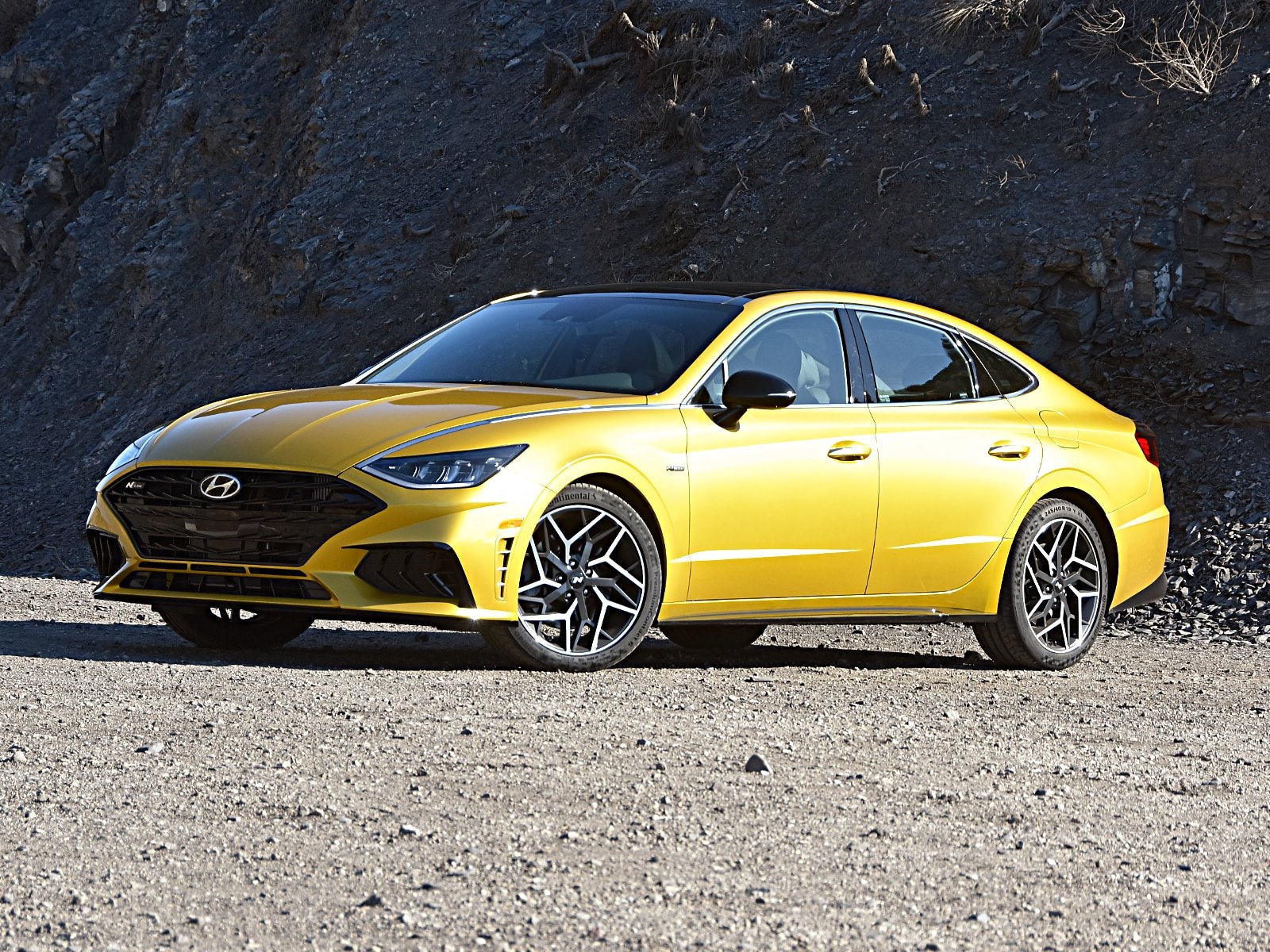
According to CarGurus experts, the overall rating for the 2020 Nissan Versa is 7.2 out of 10, while the 2021 Hyundai Sonata scores 8.5 out of 10. Based on these ratings, the 2021 Hyundai Sonata is the clear winner, offering superior performance, advanced technology, and a more refined driving experience.
Choose the 2021 Hyundai Sonata if:
Shop Now- You want a midsize sedan with powerful performance and sporty handling.
- You value advanced technology and a comprehensive suite of safety features.
- You seek a comfortable and well-appointed interior with premium materials.
Choose the 2020 Nissan Versa if:
Shop Now- You need a budget-friendly subcompact sedan with good fuel economy.
- You prioritize a spacious trunk for your gear.
- You appreciate straightforward yet stylish interior design.

By: CarGurus + AI
At CarGurus, our team of experienced automotive writers remain at the heart of our content operation, conducting hands-on car tests and writing insightful guides that are backed by years of industry experience. To complement this, we are harnessing AI to make our content offering more diverse and more helpful to shoppers than ever. To achieve this, our AI systems are based exclusively on CarGurus content, ratings and data, so that what we produce is both unique to CarGurus, and uniquely helpful to car shoppers.











